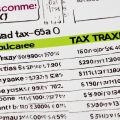Are you concerned that a business is not paying its fair share of taxes? Tax evasion is a serious offence in the UK, costing the government billions in lost revenue and impacting public services like healthcare and education.
Unlike tax avoidance, which involves using legal loopholes to reduce tax liability, tax evasion is a criminal act that involves deliberate dishonesty in reporting income, expenses, or financial transactions.
If you suspect a business is engaging in fraudulent tax activities, you have the right to report it to HM Revenue and Customs (HMRC).
This guide explains how to identify tax evasion, the reporting process, legal considerations, and potential outcomes. Understanding the correct procedures ensures your report is effective while protecting your identity and rights.
What is Tax Evasion?

Tax evasion is the deliberate act of avoiding tax obligations by providing false information or concealing income from HM Revenue and Customs (HMRC).
Unlike tax avoidance, which involves legally minimising tax liabilities within the framework of the law, tax evasion is considered a criminal offence in the UK and carries severe penalties, including hefty fines and imprisonment.
What Are Common Examples of Business Tax Evasion in the UK?
Tax evasion can take various forms, and both individuals and businesses can be guilty of engaging in fraudulent tax activities. Some of the most common methods include:
- Non-reporting of income: Businesses or individuals failing to declare their earnings or intentionally underreporting them in tax returns.
- False expense claims: Claiming non-existent or exaggerated expenses to reduce taxable income.
- Hidden assets and offshore accounts: Moving money abroad or concealing assets to avoid tax obligations.
- Undeclared cash transactions: Businesses accepting cash payments and failing to record them in their accounts to evade tax.
- VAT fraud: Making fraudulent VAT repayment claims to recover more tax than is legally owed.
- Payroll fraud: Paying employees “off the books” to avoid National Insurance and income tax deductions.
What Are the Legal Consequences of Tax Evasion?
Tax evasion is a serious offence under UK law. Depending on the severity of the fraud, individuals and businesses caught evading taxes may face:
- Substantial financial penalties: HMRC can impose fines up to 200% of the tax evaded.
- Criminal prosecution: In severe cases, tax evasion can lead to imprisonment.
- Business restrictions: Companies found guilty may be blacklisted or prohibited from conducting business.
- Public exposure: HMRC regularly publishes details of convicted tax evaders as a deterrent.
The UK government has implemented stricter regulations and introduced measures like the Criminal Finances Act 2017, which holds businesses accountable for failing to prevent tax evasion.
Additionally, HMRC has enhanced its digital surveillance to detect fraudulent activities more effectively.
Understanding tax evasion is crucial, as any deliberate attempt to misrepresent financial information can lead to serious legal and financial consequences.
HMRC actively investigates suspected cases, and individuals or businesses involved in fraudulent tax practices risk significant penalties.
How Can You Identify Business Tax Evasion?

Identifying tax evasion in a business requires careful observation of financial activities and compliance with tax laws.
While HM Revenue and Customs (HMRC) actively investigates tax fraud, individuals such as employees, customers, and business associates can often detect suspicious behaviour.
Recognising the red flags of tax evasion can help determine whether a business is unlawfully avoiding tax obligations.
What Are the Common Signs of Business Tax Evasion?
Several indicators suggest that a business may be engaging in fraudulent tax activities. Some of the most frequent warning signs include:
- Unreported Income: Businesses that deal mainly in cash may fail to declare all their earnings. If a company insists on cash payments and refuses to issue receipts, this could indicate an attempt to avoid tax reporting.
- Understating Revenue: Some businesses manipulate financial records by recording lower income than they actually receive to reduce their tax liabilities. This can often be identified through discrepancies between reported income and visible business activity.
- False Expense Claims: Fraudulent businesses may exaggerate expenses or claim non-existent costs to lower their taxable profits. This could involve fabricating receipts or inflating supplier invoices.
- Misclassification of Employees: Some businesses wrongly classify employees as independent contractors to avoid paying National Insurance and other employment-related taxes.
- Offshore Accounts and Hidden Assets: Transferring money to overseas accounts or concealing assets is a common way businesses evade tax. HMRC has tightened regulations on offshore tax evasion, but it remains a major issue.
- VAT Fraud: A business may fail to register for VAT when required or submit fraudulent VAT refund claims. Some companies also charge VAT to customers without remitting it to HMRC.
- Use of Multiple Bank Accounts: Businesses attempting to hide income often use multiple or offshore bank accounts to obscure financial transactions from tax authorities.
Can Employees or Customers Detect Tax Evasion?
Yes, employees, customers, and suppliers may notice irregularities in a business’s tax compliance. Some telltale signs include:
- Employees being paid cash-in-hand without payslips or tax deductions.
- Customers not receiving invoices or VAT receipts for large transactions.
- Suppliers noticing discrepancies between reported and actual payments.
While these signs do not automatically confirm tax fraud, they are strong indicators that further investigation may be necessary. If you suspect a business is evading tax, you can report it to HMRC anonymously, ensuring that financial laws are upheld.
How to Report a Business for Tax Evasion in the UK?

Reporting tax evasion is an essential step in ensuring businesses pay their fair share of tax and comply with UK tax laws.
If you suspect a business is deliberately evading tax, you can report it to HM Revenue and Customs (HMRC) confidentially. HMRC provides multiple ways for individuals to report tax fraud, ensuring anonymity and protection for whistleblowers.
How to Report Tax Evasion to HMRC?
You can report tax evasion in the UK through the following methods:
1. Online Reporting Form
- The fastest and most secure way to report tax fraud is through HMRC’s online reporting tool.
- Visit the official HMRC website Report Tax Fraud
- Fill out the online form with as much detail as possible about the suspected fraud.
2. HMRC Fraud Hotline
- If you prefer to report by phone, you can call the HMRC fraud hotline at telephone UK 0800 788 887 and telephone outside UK+44 203 080 0871
- The hotline is available Monday to Friday, 9 AM to 5 PM (except bank holidays).
3. Alternative Reporting Methods
If you cannot use the online service or hotline, HMRC provides alternative reporting options for different types of fraud:
- VAT fraud and missing trader fraud should be reported via the VAT fraud helpline.
- Money laundering concerns should be reported to the National Crime Agency (NCA).
What Information Do You Need to Provide?
When reporting tax evasion, HMRC requires as many details as possible to investigate effectively. While you do not need to provide personal information, having the following details can strengthen your report:
- Business name, address, and website (if applicable).
- Details of fraudulent activities such as undeclared income, false expenses, or VAT fraud.
- The timeframe when the suspected tax evasion began and whether it is ongoing.
- Names of people involved (if known).
- Any supporting evidence (e.g., invoices, payment records, or eyewitness accounts).
Can You Report Tax Evasion Anonymously?
Yes, HMRC allows you to report tax fraud completely anonymously. You are not required to provide your name or contact details. However, if you choose to remain anonymous, HMRC will not be able to reach out for additional information if needed.
What Should You Avoid When Reporting Tax Fraud?
To ensure your safety and the integrity of the investigation, HMRC advises the following:
- Do not try to gather additional evidence leave the investigation to HMRC.
- Do not discuss your report with others this could jeopardise the investigation.
- Do not encourage anyone to commit fraud to obtain more information.
By following these steps, you can contribute to maintaining a fair tax system in the UK. HMRC takes tax fraud seriously and investigates all credible reports.
What Happens After You Report Tax Evasion?

Once you report a business for tax evasion, HM Revenue and Customs (HMRC) will assess the information provided and determine whether an investigation is necessary.
While HMRC does not provide updates on individual reports, it has a structured process for handling tax fraud cases. Understanding what happens after submitting a report can help set expectations about the potential outcomes.
How Does HMRC Investigate Tax Fraud?
HMRC follows a systematic approach when investigating suspected tax evasion cases:
- Initial Review of the Report: HMRC analysts examine the information provided, cross-checking it with existing financial records, tax returns, and business transactions.
- Risk Assessment: The severity and credibility of the report are assessed. Cases involving large-scale fraud, repeat offences, or organised crime are prioritised.
- Surveillance and Monitoring: HMRC may monitor the business’s financial activity, conduct audits, or gather intelligence through external sources.
- Direct Investigation: If substantial evidence is found, HMRC can launch a formal investigation, which may include forensic accounting, site visits, and interviews with employees or business owners.
- Legal Action and Penalties: If tax fraud is confirmed, HMRC imposes financial penalties, recovers unpaid taxes, and may initiate criminal proceedings if necessary.
What Are the Possible Outcomes of an Investigation?
Depending on the severity of the fraud, an HMRC tax investigation can lead to several outcomes:
- No Further Action: If the report lacks sufficient evidence or the business is found to be compliant, the case may be closed without further action.
- Tax Recovery and Fines: If tax evasion is proven, HMRC will demand repayment of the evaded tax along with penalties, which can be up to 200% of the owed tax.
- Civil Settlements: In some cases, businesses may settle with HMRC to avoid legal action by agreeing to pay the full amount owed.
- Criminal Charges: Severe tax fraud cases may result in criminal prosecution, leading to hefty fines or imprisonment.
- Business Closure: If a business is found guilty of repeated tax evasion, HMRC can take legal action to shut it down permanently.
Will You Be Notified About the Investigation Results?
No, HMRC does not disclose the results of investigations to the individuals who report tax fraud. This confidentiality policy ensures:
- The integrity of the investigation remains intact.
- The business under investigation is not unfairly targeted without due process.
- The whistleblower’s identity remains protected, preventing potential retaliation.
However, if your report leads to a successful prosecution, the case may become public, and HMRC may publish details of convicted tax evaders.
How Long Does an HMRC Investigation Take?
The duration of an investigation varies based on the complexity of the case:
| Type of Case | Estimated Duration |
| Minor tax discrepancies | 3 to 6 months |
| Complex financial fraud | 1 to 2 years |
| Criminal prosecution | Several years |
Next Steps After Reporting
If you have already reported a business for tax evasion:
- You do not need to follow up, as HMRC will handle the case independently.
- If you discover new evidence, you can submit an additional report.
- If you fear retaliation, consider seeking legal advice for whistleblower protection.
By reporting tax fraud, you contribute to a fairer tax system and help prevent businesses from exploiting the economy for their own gain.
Can You Get a Reward for Reporting Tax Evasion?

Many individuals wonder whether HM Revenue and Customs (HMRC) offers financial rewards for reporting tax evasion.
While some countries, such as the United States, have structured whistleblower reward programmes, the UK operates on a discretionary basis. This means that HMRC may offer a reward in certain cases, but it is not guaranteed.
Does HMRC Offer Whistleblower Rewards?
HMRC has the authority to grant financial rewards for information that leads to significant tax recovery, but this is done on a case-by-case basis.
Unlike formal reward schemes in other countries, HMRC does not publish set criteria for reward eligibility. Instead, payments are made at the government’s discretion.
Key points to understand:
- Rewards are rare and typically only given in cases where the whistleblower’s information leads to a major tax recovery.
- There is no fixed percentage of the recovered tax that is paid to the informant.
- You must provide your contact details if you wish to be considered for a reward. Anonymous reports do not qualify for financial incentives.
How Does the HMRC Informant Reward Scheme Work?
Although not widely publicised, HMRC does have a history of issuing payments to informants who provide valuable intelligence on tax fraud. The process generally works as follows:
- You report the suspected tax evasion through HMRC’s online form or fraud hotline.
- HMRC assesses the case and determines whether the provided information is actionable.
- If the report leads to a successful tax recovery, HMRC may decide to offer a financial reward.
- If you qualify, HMRC will contact you directly to discuss the details of the payment.
However, even if your information results in HMRC recovering unpaid taxes, there is no guarantee of receiving a financial reward.
Are There Protections for Whistleblowers in the UK?
If you report tax evasion and fear retaliation from your employer or the business involved, the UK offers whistleblower protection laws under the Public Interest Disclosure Act 1998 (PIDA).
This means that:
- Employers cannot legally dismiss or discriminate against an employee for reporting tax fraud in good faith.
- If a whistleblower faces unfair treatment, they can take legal action against their employer.
- Certain disclosures may need to be made through appropriate channels to qualify for protection under PIDA.
If you are considering reporting tax fraud as an employee or insider, it may be beneficial to seek legal advice to ensure you are fully protected.
Should You Report Tax Evasion Expecting a Reward?
While there is a possibility of receiving financial compensation for reporting tax fraud, it should not be the primary motivation.
The main purpose of reporting tax evasion is to ensure a fairer tax system and prevent businesses from unlawfully avoiding their financial responsibilities.
If you have credible information about a business evading tax, you should report it regardless of the potential for financial gain, knowing that your contribution helps HMRC enforce tax laws and recover lost public funds.
What Are the Legal and Ethical Considerations When Reporting?

Reporting tax evasion is a responsible action that helps maintain fairness in the tax system. However, before making a report, it is essential to understand the legal implications and ethical responsibilities involved.
Ensuring that your report is truthful and submitted in good faith protects both you and the integrity of the investigation.
Can You Face Legal Consequences for False Reporting?
HMRC encourages individuals to report genuine cases of tax fraud, but false or malicious reports can have legal consequences.
- Knowingly submitting false information could result in legal action against the informant.
- If a report is made with malicious intent, such as to harm a competitor or employer, it could be considered defamation or harassment.
- HMRC investigates all reports carefully, and false claims are unlikely to result in action against the accused party.
To avoid legal risks, ensure that you only report cases where you have reasonable grounds to suspect tax fraud and provide truthful information.
How Does Whistleblower Protection Work in the UK?

Individuals who report tax fraud in good faith may qualify for legal protection under the Public Interest Disclosure Act (PIDA) 1998. This applies mainly to employees and insiders who expose tax fraud within their company.
- Employers cannot retaliate against whistleblowers through dismissal, demotion, or other discriminatory actions.
- If an employer takes adverse action, the whistleblower may be entitled to compensation through an employment tribunal.
- To be protected, the report must be made to the appropriate authority, such as HMRC, and not publicly disclosed in a way that could be considered a breach of confidentiality.
If you are concerned about workplace retaliation, consulting a legal expert or whistleblower support organisation can help you navigate the process safely.
Is It Ethical to Report Tax Fraud?
Tax evasion harms public services, businesses, and honest taxpayers. Reporting fraud is an ethical act that ensures companies contribute fairly to the economy. However, ethical considerations include:
- Motivation for reporting: Reporting should be based on genuine concern for tax compliance, not personal revenge or competitive advantage.
- Privacy and confidentiality: Only disclose necessary information and avoid spreading unverified claims.
- Responsibility to the public: Tax fraud reduces funding for essential services like healthcare, education, and infrastructure. Reporting helps maintain fairness in the system.
Should You Seek Legal Advice Before Reporting?
While most individuals can report tax fraud without legal concerns, seeking professional advice may be beneficial in complex situations, such as:
- Employees exposing fraud within their organisation who require protection from retaliation.
- Business partners or shareholders reporting misconduct within their company.
- Cases involving large-scale financial fraud that may require detailed evidence.
Legal advisors or whistleblower support organisations can guide you on the best way to report fraud while protecting your rights and anonymity.
Tax fraud affects the economy, businesses, and public services. By reporting tax evasion ethically and responsibly, you contribute to a fairer tax system and help HMRC combat financial crime.
Understanding the legal and ethical aspects of reporting ensures that your actions are both responsible and protected under UK law.
Conclusion
Tax evasion undermines the integrity of the UK’s financial system, placing an unfair burden on honest taxpayers and reducing funding for essential public services. Reporting businesses that engage in fraudulent tax activities helps ensure fairness and accountability.
HMRC provides secure and confidential channels to report suspected tax fraud, and while anonymity is an option, providing accurate information increases the chances of an investigation. It is important to report tax evasion responsibly, avoiding false claims and ensuring your report is based on genuine evidence.
By taking action against tax evasion, you are contributing to a fairer economy and a more transparent tax system. If you suspect fraudulent activity, follow the correct procedures and help uphold tax compliance in the UK.
FAQs
Can I report tax evasion if I don’t have concrete proof?
Yes, you can report tax evasion even if you do not have direct evidence. HMRC investigates all reports based on the information provided and cross-checks them with financial records. However, providing specific details such as the business name, location, and suspected fraudulent activity increases the chances of a thorough investigation.
What is the difference between tax evasion and tax avoidance?
Tax evasion is illegal, involving deliberate acts such as underreporting income, falsifying records, or hiding assets to avoid paying taxes. Tax avoidance, while legal, involves using loopholes in tax laws to minimise tax liabilities. However, HMRC is actively cracking down on aggressive tax avoidance schemes that push legal boundaries.
How long does HMRC take to investigate a tax fraud report?
The length of an investigation varies depending on the complexity of the case. Minor tax discrepancies may be resolved within 3 to 6 months, while large-scale fraud cases can take years to conclude. HMRC does not provide updates on individual reports to maintain investigation integrity.
Will the business know that I reported them?
No, HMRC keeps all reports confidential, and the business will not be informed of the source of the complaint. Even if you choose to provide your personal details, they will not be disclosed to the company under investigation.
Can I report tax evasion as an ex-employee of the business?
Yes, employees and former employees can report tax fraud if they have knowledge of illegal activities. Many cases of tax evasion are uncovered through whistleblowers. However, if you are concerned about retaliation, you may want to seek legal advice before making a report.
Does HMRC investigate all tax evasion reports?
HMRC reviews every report but prioritises cases based on evidence, severity, and potential tax losses. Minor or vague reports may not lead to immediate investigations, but if a business is repeatedly reported, it increases the likelihood of action.




















No Comments
Leave a comment Cancel